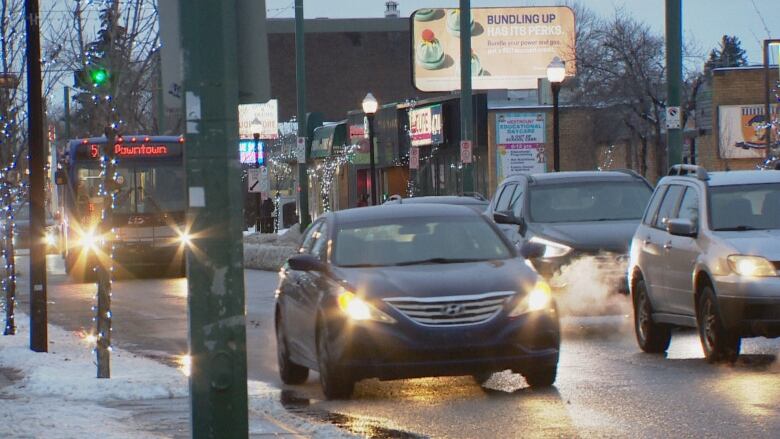'I thought it was BS': Alberta drivers facing higher insurance costs
With previous cap lifted, companies now allowed to apply for rate increases

Some Alberta drivers are facing increases in car insurance premiums next year, following the provincial government's decision to lift a five per cent cap on rates.
Edmonton driver Danny Parker, 45, said his insurance with Aviva Insurancewill increase by about 25 per cent in 2020.
That meanshe will pay$1,885 next year, a jumpfromthe $1,350 he paid this year.
"I thought it was BSbecauseI have no tickets, no at-fault accidents on my record," Parker said. "I pretty much have a clean record and I'm now payingclose to $2,000 per year. I think that's unfair. I don't understand why I'm paying so much."
Parkerwas told by his broker that he isn't alone.Companies across Alberta are applying to increase their rates following the removal of the cap, he said.
Kim Zook, 36, fromTofield, said his rate went up when herenewed his premiums with WawanesaInsurance this month.
Zook's rate jumped from $445 to $790 per year, which averages out to about an extra $30per month. He said it's going to be a challenge to cover the extra cost because he is injured, unable to work,and has medical bills to pay.
"I told them that's pretty ridiculous," Zook said. "Thirty dollars isn't much for your average Joe, but, to me, it's a tank of gas for four days, right, so it's harder for me than a lot of people."
Different rates for different companies
In a private bulletin to brokers obtained by CBC News, Avivasaid it is "increasing private vehicle rates in Alberta" effective Jan. 1, 2020.
"The overall rate increase impact is plus15 per cent for Aviva and plus14.1 per cent for traders. Impact at the individual policy level will vary," the bulletin reads.
Aviva declined an interview with CBC News about their rate increase. Wawanesa also did not respond to CBC's request for an interview.
To get a rate increase approved, insurance companies must apply to Alberta's Automobile Insurance Rate Board (AIRB).
In an emailed statement, AIRB executive director Laurie Balfour said the board "does not share information about any rate change requests the AIRB has received or approved until 10 days after the end of the quarter in which they were implemented."
"We cannot disclose information about rate filing decisions prematurely for competitive reasons if we did, it might give other companies an unfair advantage over their competitors," Balfour wrote.
"The AIRB reviews each rate change filing and scrutinizes it fully with actuarial analysis and comparison to industry benchmarks to ensure the application is justified. Rate filings decisions are published on the AIRB website."
Increase in consumer claims, companies at deficit
Celyeste Power, western region vice-president for the Insurance Bureau of Canada, said auto insurance rates "have been increasing for the past few years even when the cap was in place," but now consumers are just seeing it potentially at 20 or 30 per cent.
Power said the increases aredue to a number of factors: built-in vehicle technology is expensive to repair,distracted driving is on the rise, andAlberta's weather is changing.
All of these factors have increased the amount of consumer claims and their associated costs, she said.
The insurance bureau said Alberta insurershave been paying out on average $1.12 in claims, premium taxesand operating costs for every $1of premium revenue, resulting in about$2 billion in underwriting losses in the past five years.
"It's really unsustainable for anyone running a business," Power said, adding that with rate increases, consumers should approach different companies for options.
"The shopping-around method is the best message I can send. Take the time to shop around. Each insurance company will look at your risk differently," she said.
With files from CBC's Stephen Cook












_(720p).jpg)


 OFFICIAL HD MUSIC VIDEO.jpg)
.jpg)



























































































